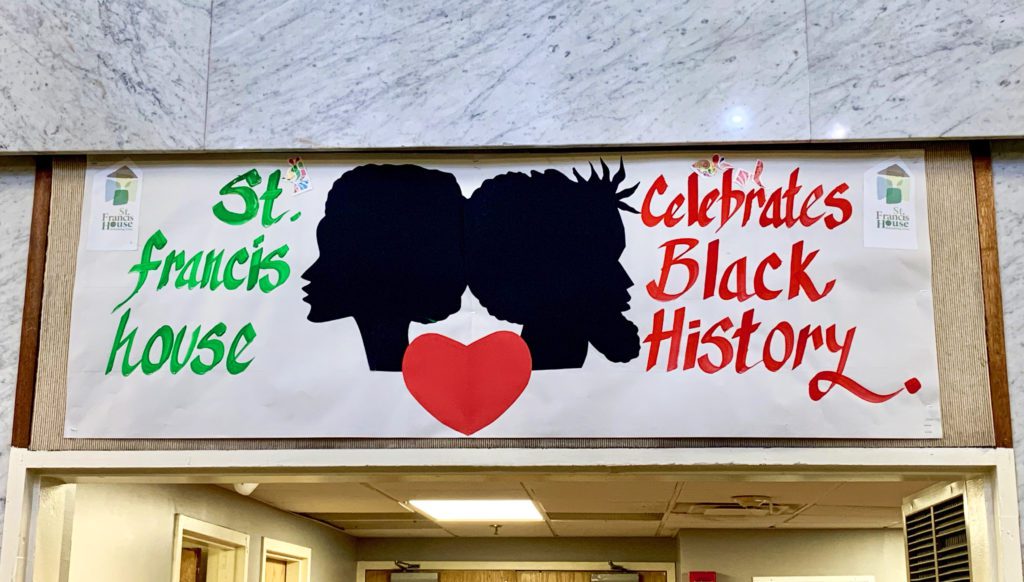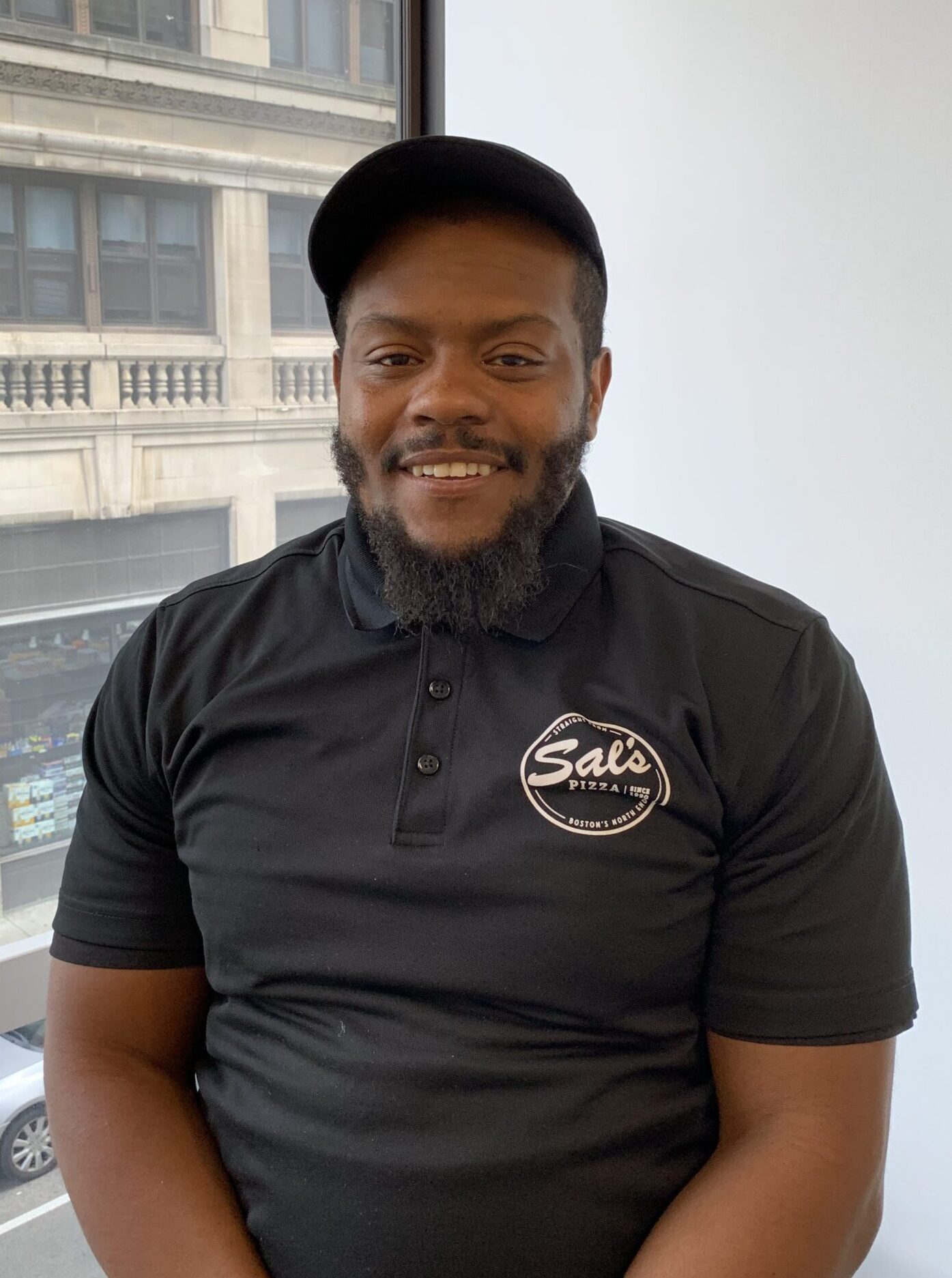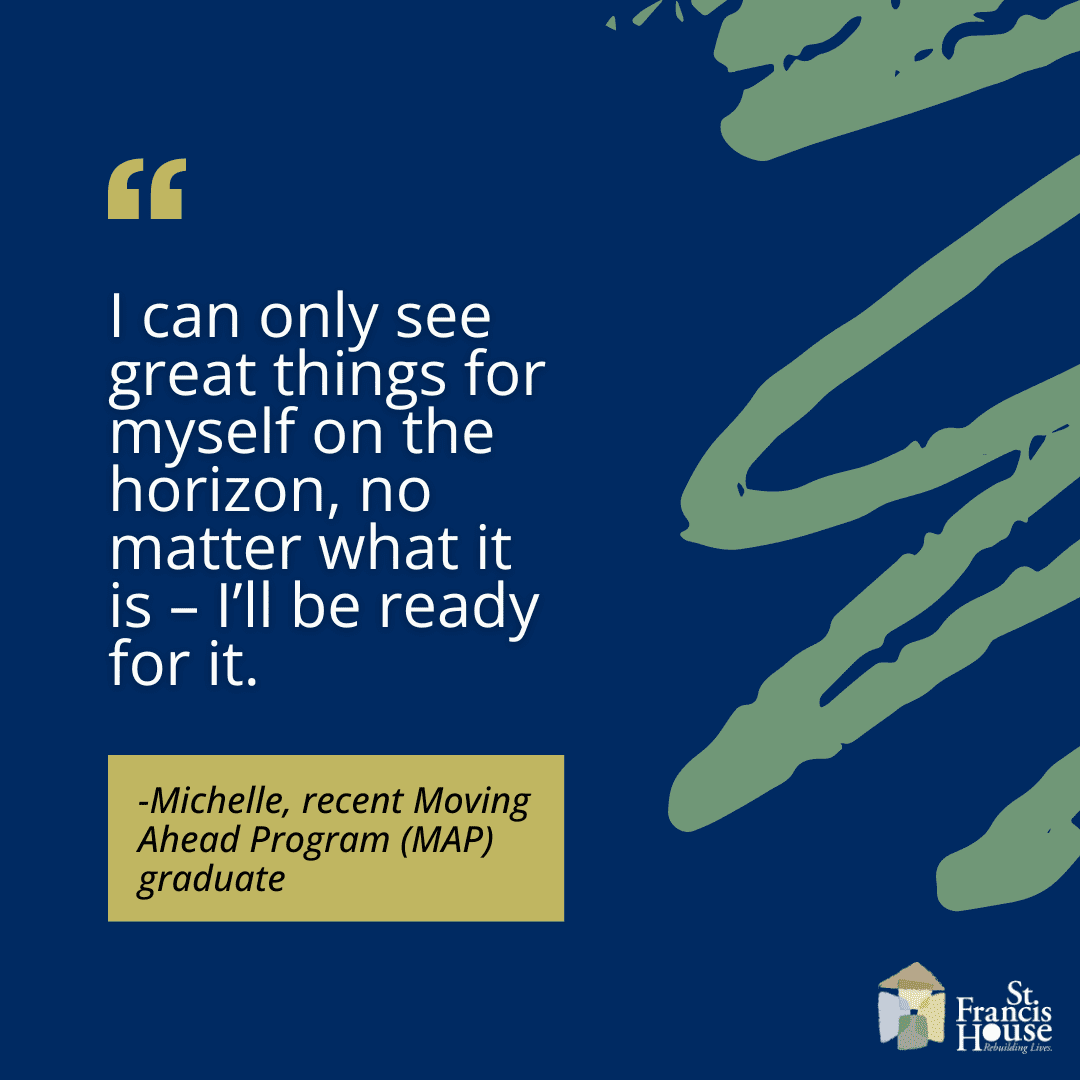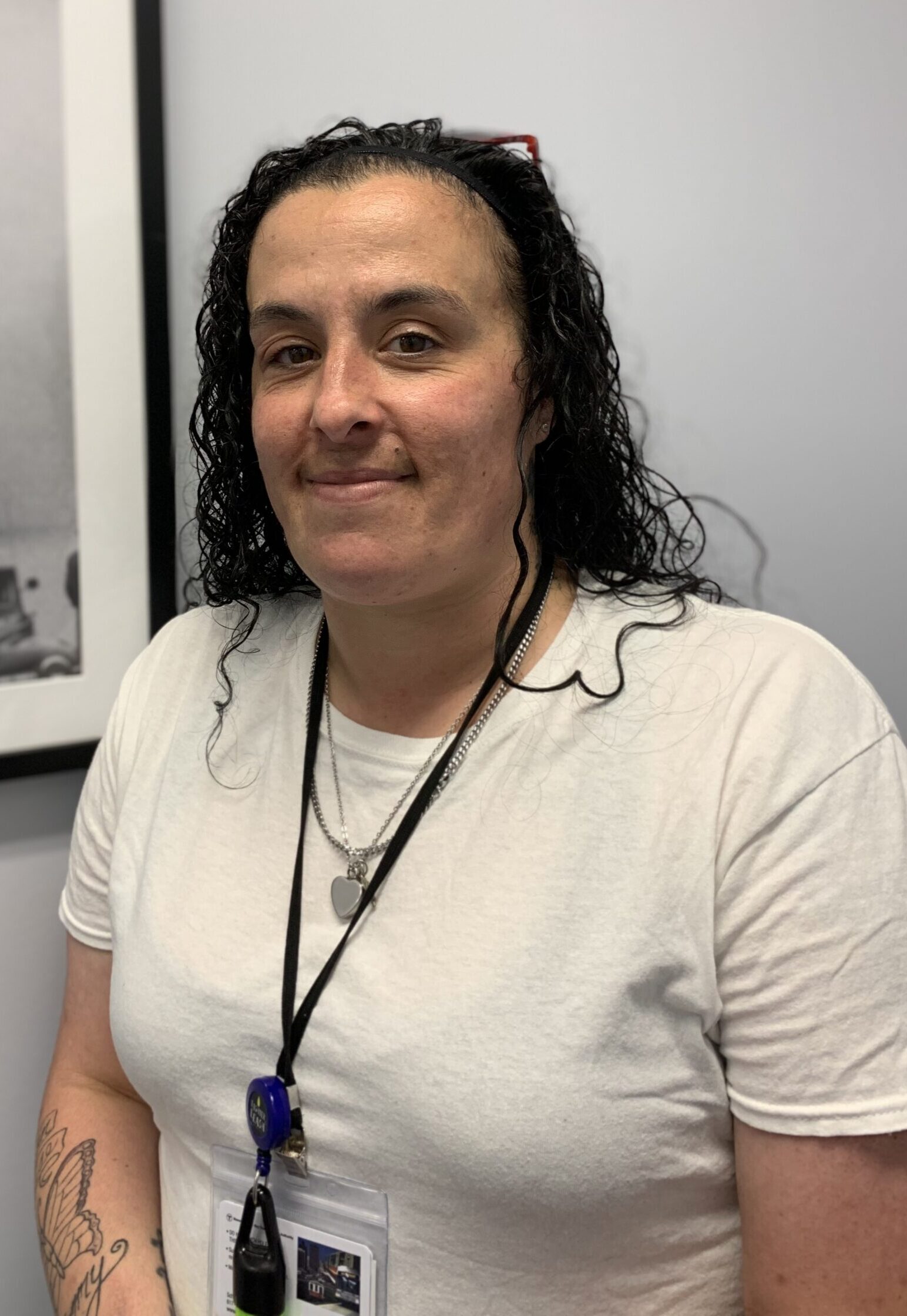Each February, we observe Black History Month. Many of us use the opportunity to learn about events in our history that may have previously been unknown to us, to celebrate Black achievement, and to see often unsung heroes brought to the fore.
One of the undercurrents of Black history in our country has been the discrimination that Black Americans have faced when it comes to housing. They’ve historically faced residential segregation, substandard living conditions, and redlining when it came to acquiring mortgages. Decades ago, Martin Luther King recognized this, and much of his Civil Rights work focused on housing. More than 50 years ago, in the wake of King’s assassination, the Fair Housing Act was passed, outlawing discrimination in this critical area.
But housing issues for the Black community didn’t disappear once the Fair Housing Act was written into law. Through our own lens here at St. Francis House, we see this when it comes to the disparity in the homelessness numbers. The U.S. Department of Housing and Urban Development publishes annual findings on homelessness. In their Annual Homeless Assessment Report for 2019 (the most recent one available), HUD found that, while Blacks make up 13% of the population, they account for 40% of those experiencing homelessness.
Today, Black leaders are increasingly focused on helping resolve the seemingly intractable problem of fair housing for the Black community – history in the making!
The National Housing Conference (NHC) is a non-profit organization dedicated to the belief that “everyone in America should have equal opportunity to live in a quality, affordable home in a thriving community.”
Last year, the NHC took the occasion of Black History Month to honor some of these leaders.
Members of Congress Maxine Waters and Lacy Clay were cited for their work on closing the racial homeownership gap. Their work and that of other policymakers is informed by the research efforts of Alanna McCargo of the Urban Institute, whose most recent initiatives focus on the role Black millennials can play to help close the homeownership gap. The NHC also recognized the housing advocacy work of the National Fair Housing Alliance’s Lisa Rice; the efforts of Bill Bynum of HOPE Enterprise Corporation to develop communities by securing housing financing for the underserved; and Maurice Jones of the Local Initiatives Support Corporation, which supports community revitalization.
Closer to home, we want to note that Congresswoman Ayanna Pressley is currently spearheading efforts to protect renters from eviction and to provide rental assistance to those who are most vulnerable.
The US Interagency Council on Homelessness is closer to home in another way. Last February, they focused their programming on leaders dedicated to the twin goals of achieving racial equity and eradicating homelessness. We found it fascinating to learn about what other organizations that are focused on homelessness are doing.
Miriam’s Kitchen is a DC-based social services organization where Brittney Washington serves as Racial Equity and Inclusion Manager. Recognizing that racism is a major factor when it comes to homelessness, she works to make sure that her organization’s diversity better reflects that of the community they serve.
True Colors United (which was founded by entertainer Cyndi Lauper) works on solutions to youth homelessness in the LGBTQ community. Twiggy Pucci Garcon is their Senior Programs Director. They’ve been instrumental in helping the organization welcome to its staff, not just those who are queer and trans, but people of color as well.
Project Community Connections in Atlanta serves a largely African American population. Their Co-CEO Jimiyu Evans takes a data-driven approach to look at the intersection of race and homelessness, using data to inform his organization’s decisions. (A man after our own heart!)
DeKalb County, Georgia is more than half African American, and also has a large immigrant population. Melvia Richards, Housing Manager at the DeKalb County Community Development Department, believes that constant education and training is key to developing staff who can help overcome racial and cultural inequities.
When it comes to housing and homelessness, these individuals and organizations represent history in the making. At St. Francis House, we’re committed to making history, too, by making the present and the future a brighter one for the guests we serve.
We believe that housing is a human right. We believe it’s critical that, when we work with our guests, housing concerns should be placed first. Through our work, we continually put these beliefs into motion.
Each day, we help guests looking for housing navigate the complex array of programs available to them. Through our Next Step program, we have long housed individuals with supported single-room housing on the top four floors of 39 Boylston. For some of our guests, this housing is a steppingstone to permanent housing independence. Others have decided that Next Step is a pretty good place to make their forever home. Two years ago, we opened The Union which offers affordable housing opportunities to its 46 residents, many of them transitioning from homelessness. We continue to explore other ways in which SFH can get involved in housing. And throughout all of our work, we are always looking for ways to alleviate the extra burden that racism places on many of our guests.



